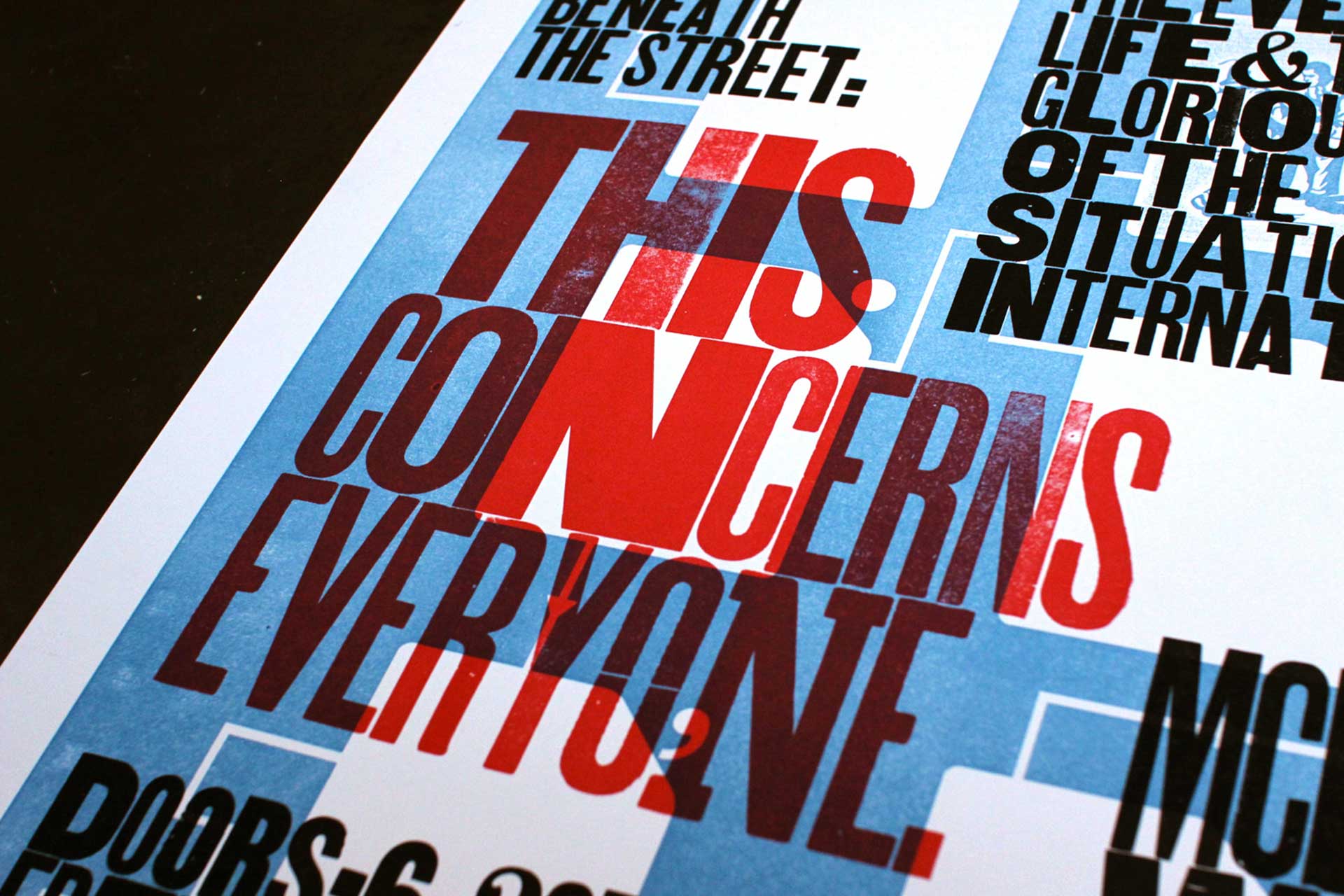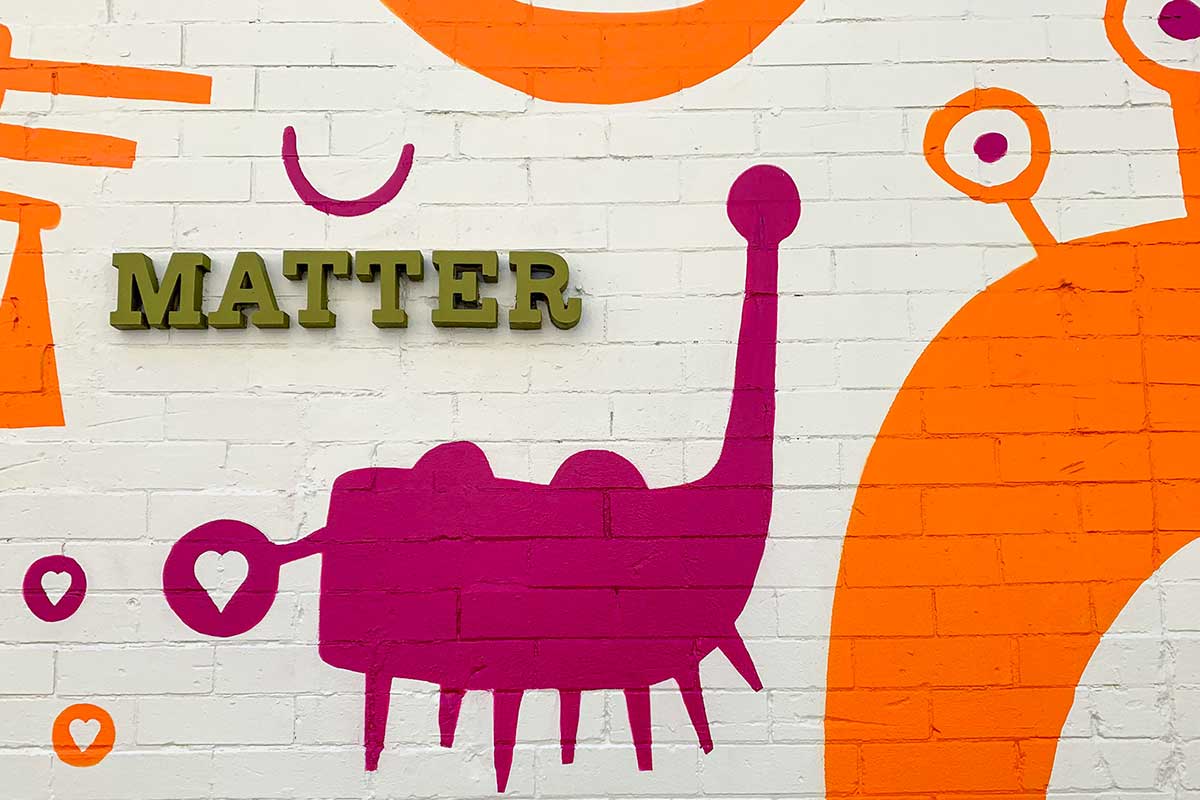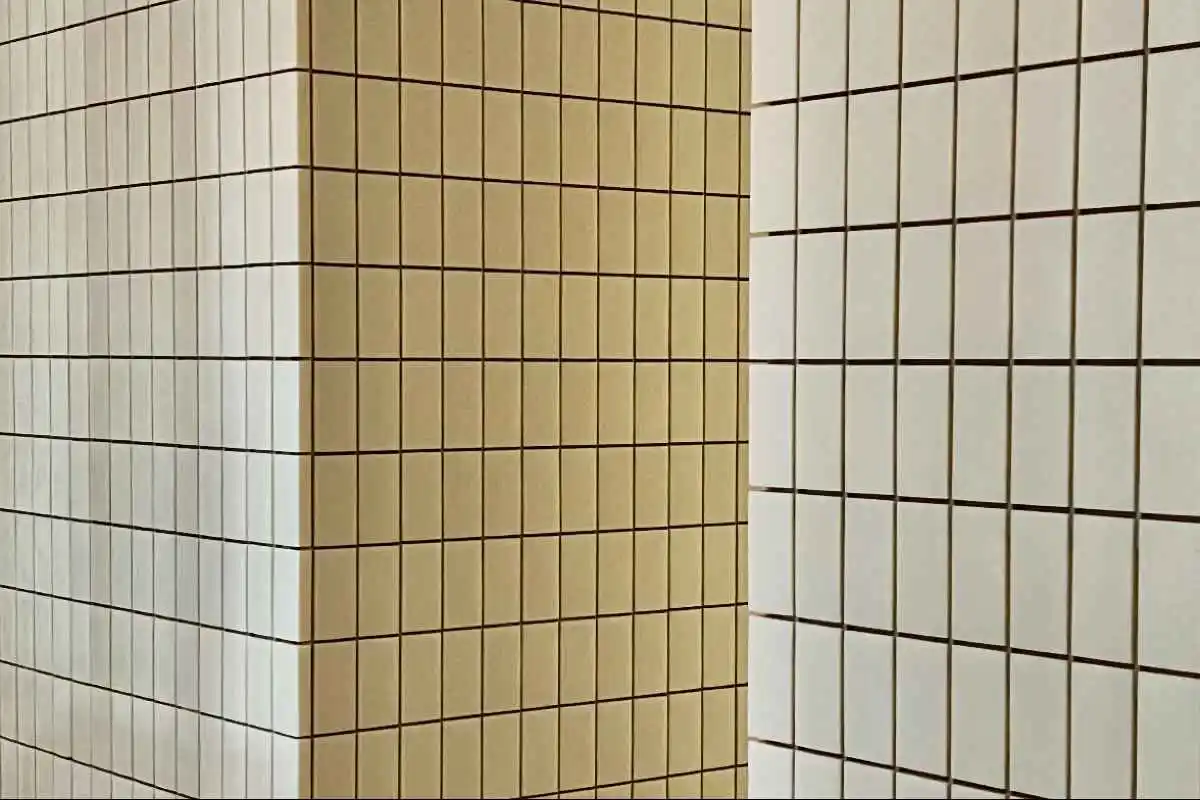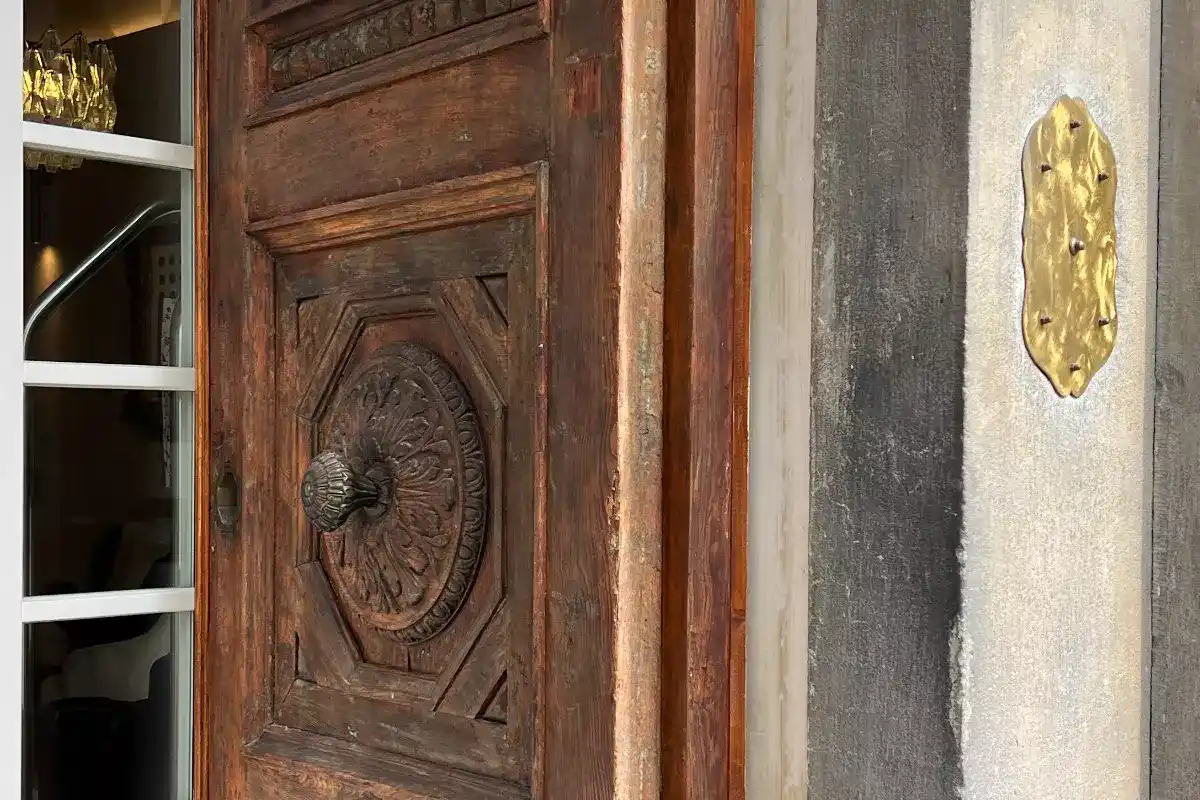Rick Griffith and Debra Johnson follow the pulse of time while infusing it with history. «We are connected to our times and we know exactly what to do»
Matter’s inception
While there are various definitions of the word community, Rick Griffith, designer and owner of Denver’s only design studio, manufactory, and design (book) shop, defines it as the people brought together through the concept and craft implemented at Matter. A collective away from conventions and mainstream, but traversed by creative compassion and independence. «Retail concepts have communities built around them. Our community commits to written materials, books, and knowledge».
Designer and letterpress printed Rick Griffith founded the store on 2134 Market Street in Denver in the summer of 1999. Originally from Southeast London, Griffith’s passion for graphic design and partner Debra Johnson brought him to the States. There, he ventured his first attempts in the niche of graphic design and letterpress printing. The word Matter, in fact, references graphic design as a means of creation and the urgency of the designers’ missions to support humans and their desire to communicate.
«Rick had already purchased one printing press, when he founded Matter. He had also been running a screen-printing operation from another location. The impulse to have production techniques available to us designers goes back to his years in New York, when Rick realized how expensive printing was and how connected graphic design was to selling designed objects with value-oriented pricing», says Johnson.
Lampoon review: Letterpress printing
The invention of the tool letterpress can be traced back to the fifteenth century, pioneering modern forms of printing. The wooden-block printing method – where letters were carved into wooden blocks and pressed on paper – got outstripped by the invention of metal-type presses, invented by Johann Gutenberg. His intention: creating ways of printing for the society that would captivate through pace and easiness.
These printing forms were the most common methods of publishing books. Yet, it evolved into an art form in the following decades when the attention was shifted towards the pace of modern technologies. Today, letterpress printing enables modern printers and artists to create commercial or niche works with machinery, suffused with history.
What began as a display for the duo’s posters and designs rocketed to a store uniting international characters, artists, and works circulating around the fascination of the letterpress craft. «We are a bunch of people that have the same interest in the tool, led by obscurity and antiquity. It is a community of men and women around the world who love to chat about this matter». The guiding aspects of knowledge acquisition and community characterize every concept detail, up to the store-aesthetic.
International influences
«Retail experiences in Berlin, San Francisco, New York, Freetown, and Lisbon have influenced us […] Our shop pulses with stimulation, in visuals, textures, intellect or heart space». Every Saturday, customers can observe Rick Griffith operating the letterpress presented in the middle of the shop floor and be part of the in-house community.
They develop an appreciation and understanding of the shelves filled with books, writing tools, and posters surrounding them. «When people enter the store on a Saturday, they can see the process of the words. From the original mock-ups to the process of printing the letters on the paper», explains Johnson. Griffith adds, «they start to gain an understanding of the texts that come off the press as being personal as well as something that takes time to produce. They start to understand the craft aspect of it».
Being a voice characterized by independence and courage
Griffith’s prints are led by events of political and social importance and contribute to a critical dialogue, understanding graphic design as a broad discipline in the service of community and industry. «What I tend to do is a lot more political because of the history I understand of the letterpress. Printing is a form of communication with your government or people at large», he explains.
«We develop the magic words to let people know how we feel, what we are excited about and how it will change their lives. Then we figure out what form that language should take. Sometimes it is a personal shape. Sometimes it is a mass-market shape». His persuasion that being a voice, characterized by independence and courage, is the tool to structural change enabled him to collaborate with printers’ worldwide on various projects. «I print all over the world. From my perspective, all collaborations are with other people’s collections of type, of the material of printing presses and paper».
Engagement with an international community
The projects, often originating from a coincidence and natural evolution, enable the designer to convey a message and engage with an international community. Griffith recently unveiled a project together with twenty-five other printers around the world on the initiative voting. «I believe that our works express what people do not tend to put into words. We can express something that somebody has thought but cannot compel to words. These are important words. I believe that the language generates attempts to speak for somebody other than myself».
Apart from the Matter print works, Griffith and Johnson stock creations and products from letterpress artists around the world. Their collection comprises stationery and writing tools from Japan, graphic novels from Latvia, or prints from Portugal, France, or Germany. «Initially, we focused our collection of books on design and art on filling a vacuum of resources in our communities. We then modified this thinking to include books that we believed people should know about – life-changing books – that formed the initial offering of resistance-focused books».
The categories they offer now have more breadth and depth than our initial collection. «Regardless of category, each book shares a common thread. It has effectively moved one of us or someone we care about, which means we are familiar with each book in our shop. Whether it is from a Brazilian publisher at UBU, a first edition 1968 James Baldwin book from Dell, or a Unit Editions design book from the UK, the antiracist bestseller from Ibram X. Kendi, or the Death is Stupid children’s book about grief. Each one is here with a great purpose».
Covid-19 impact on Matter’s four income streams
The pandemic has shifted the order of Matters four income streams. The demand in Matter’s design consultation services for clients, such as bars and restaurants decreased. While, the online business and webshop gained attention by a broader audience.
The company has managed to sustain their customer ship and interfere in the current political and social climate. The duo remains confident. «Every day we experience a connection to our online customers through their entertaining order notes or follow-up phone calls. When pressure applies to them, their instinct is to learn something – That is terrific! Matter will always have reactions to the times that we live in. Whether it is a product, a tool, a conversation, or a way of doing business. We are connected to our times, and we know what to do».
Matter
2134 Market St #2025, Denver, CO 80205, United States
Matter is Denver design studio and retail shop for designers and other thinking persons




















